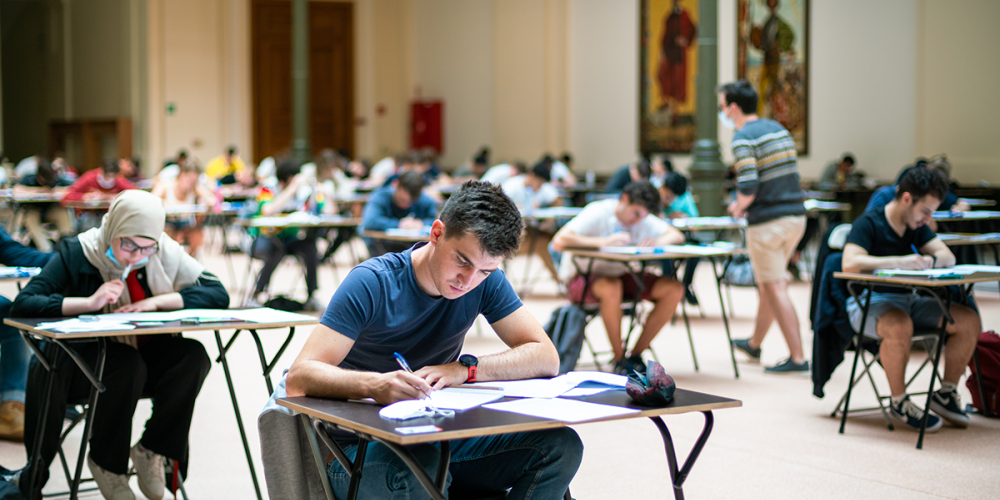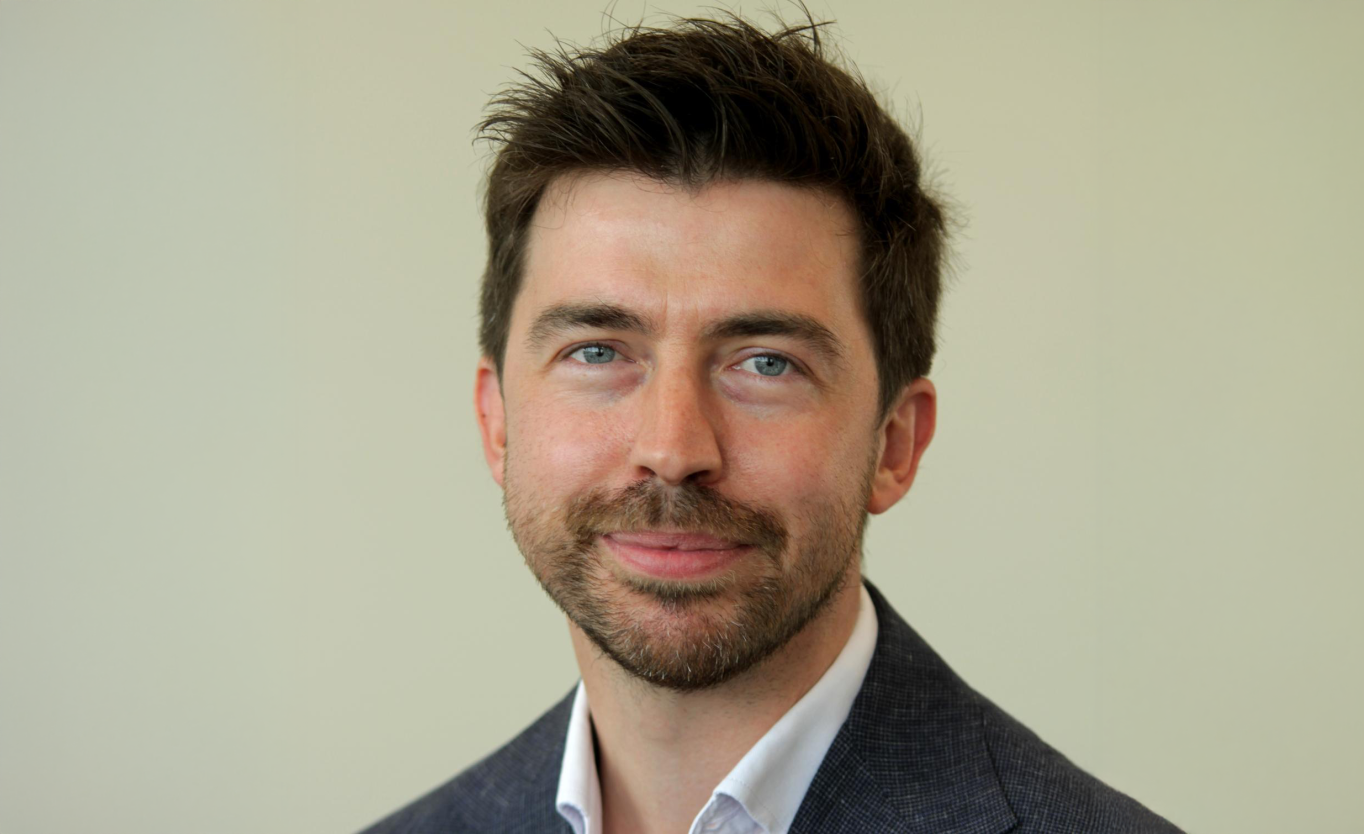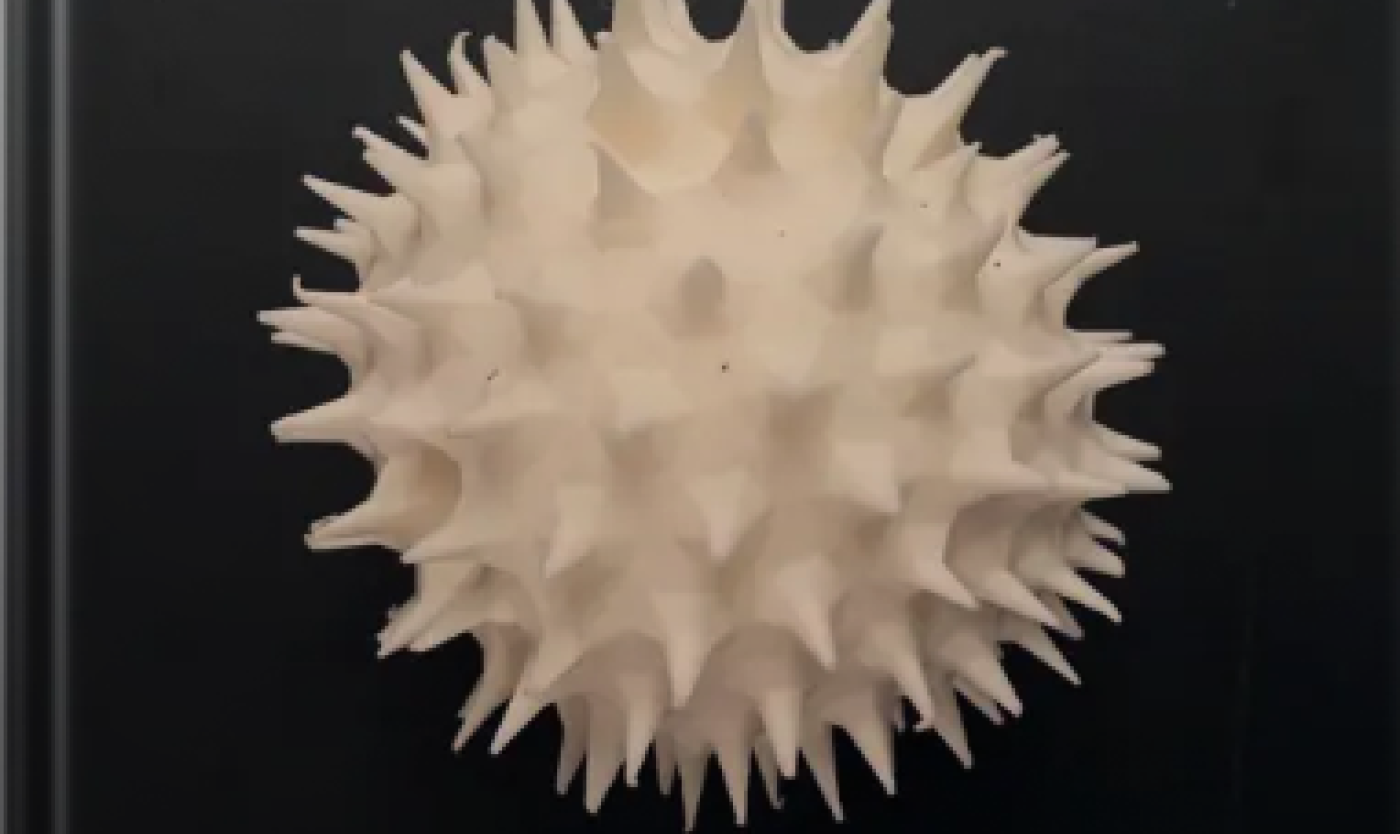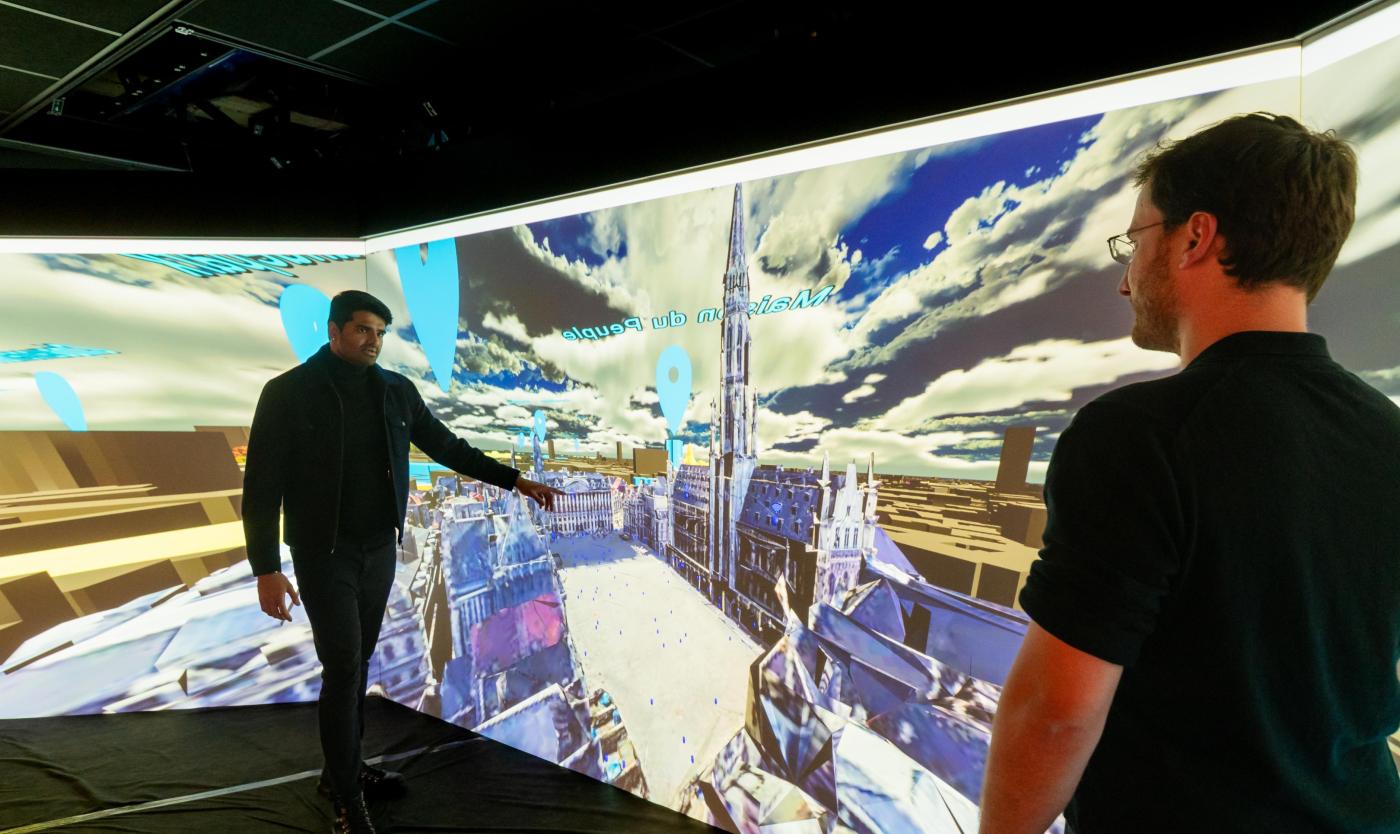
Students are increasingly turning to ChatGPT in exams and dissertations. The recent fraud case during the entrance test for medicine, dentistry and veterinary medicine once again highlighted how significant a role artificial intelligence now plays in education. But how does VUB address this? “The striking thing about the fraud debate is that no one doubts anymore that ChatGPT can actually do it,” says Vincent Ginis, Professor and Special Commissioner for Artificial Intelligence at VUB. “And that’s in one of the toughest entrance exams in the country.”
VUB has drawn up an AI charter that provides guidance for students. The basic rule is simple: you remain fully responsible for your work. ChatGPT may serve as a study buddy to rehearse material, but copy-pasting is strictly off-limits. “Ten years ago, you weren’t allowed to ask your uncle to write your introduction either. It’s no different with AI,” Ginis explains. “The only difference is that the ‘clever uncle’ is now available to everyone. That democratises access, but doesn’t change the essence.”
The charter also stresses transparency. In case of doubt, students may be asked to share their chat history. This makes it clear which ideas are their own and which were generated by the tool. “We want to see whether students can handle AI critically. Do they spot the hallucinations? Do they notice when ChatGPT is simply telling them what they want to hear?”

Vincent Ginis
Detecting and dealing with fraud
Lecturers often spot tell-tale signs of AI use: texts that are a little too polished, English phrasing unlikely for a non-native speaker, or references to books and articles that don’t actually exist. If a student is suspected, an oral explanation follows. “If someone slips up there, they’ve been caught,” says Ginis. The dean then decides on sanctions, ranging from a zero for the assignment to, in rare cases, suspension.
The return of the oral exam
According to Ginis, one trend is clear: oral assessments are making a comeback. “I would even call it a renaissance. Ultimately, we want to see how the student thinks, not how smoothly AI can generate a text.” This shift also has benefits: students receive more direct feedback, and lecturers gain a clearer view of actual knowledge.
Research and teaching
Different rules apply to researchers. Here, AI can act as a genuine accelerator. From tackling complex mathematical problems to developing new medical applications, the technology can advance research. “For students, the end product is the student themselves,” says Ginis. “For researchers, AI can contribute to societal progress. That is a fundamental difference.”
The future of assessment
VUB regularly discusses the issue within the Flemish Interuniversity Council (VLIR), but for now sees no need to fundamentally change its rules. A return to pen and paper doesn’t seem like a solution to Ginis. “Students remain inventive. The real challenge is how we assess in the future. Oral exams and personalised feedback will play a key role there.”

